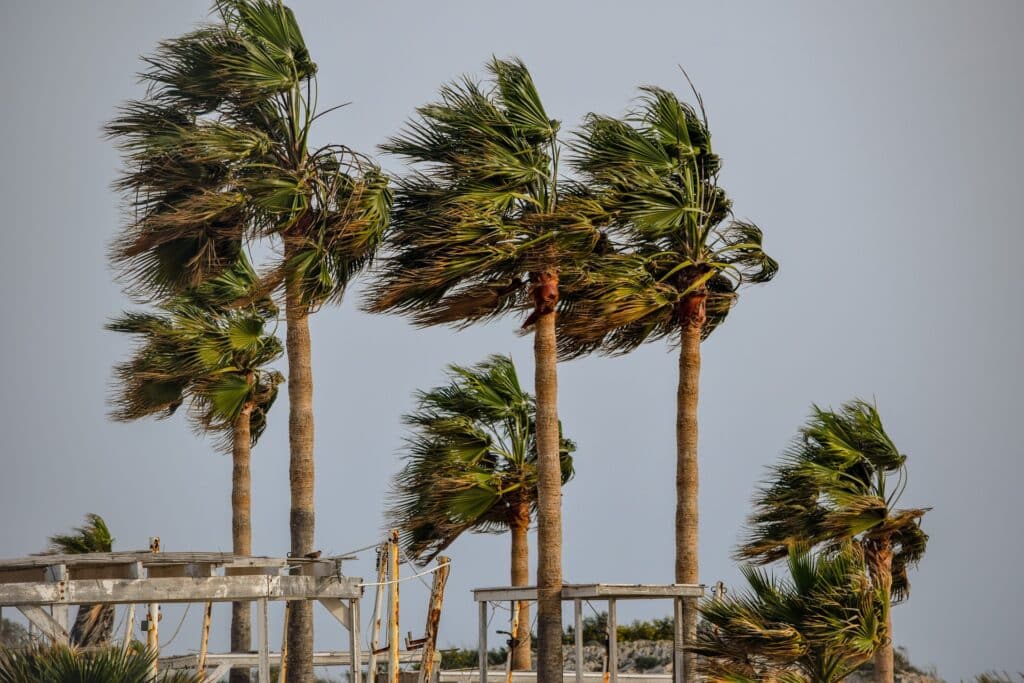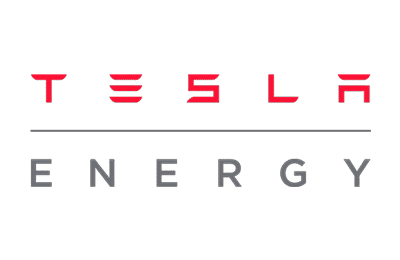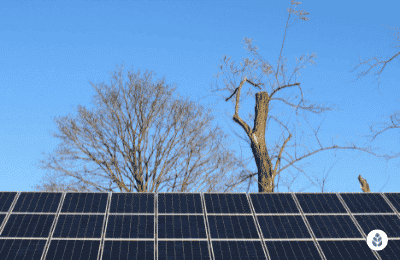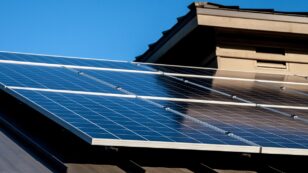
Top 7 Best Solar Companies in Virginia (2024 Reviews)
In this guide on Virginia’s leading solar companies, you’ll learn:
- What are the best solar installers in Virginia?
- How will solar affect your property value in Virginia?
- What qualities are most important in a solar company in Virginia?
Each product and or company featured here has been independently selected by the writer. You can learn more about our review methodology here. If you make a purchase using the links included, we may earn commission.
Virginia is an outstanding place to go solar, with the average homeowner seeing their panels pay for themselves and save an additional $30,000 over the remaining lifespan of the equipment. While it makes a lot of sense to go solar, getting to that point can be confusing, with nearly 100 installers to choose from, all offering different products and services.
In this guide, we’ll be discussing what we believe to be the best solar companies in Virginia. We’ll explain why we think each is a good option for residents in your area, and we’ll also provide some information on what factors to prioritize based on your energy needs in the state.
What Are the Best Solar Companies in Virginia?
We’ve researched all of the top providers in the Old Dominion to find out which are most likely to meet and exceed your expectations and maximize your savings. Below are what we’ve found to be the best solar companies in Virginia overall:
- SunPower: Best National Provider
- Blue Raven Solar: Best Financing Options
- ADT Solar: Best Warranty Coverage
- Solar SME: Best Regional Provider
- Nova Solar: Best for Local Experience
- Virtue Solar: Best Local Installer
- Southern Exposure Solar: Best Customer Service
Compare Virginia’s Top-Rated Solar Providers
For most customers in Virginia, we believe SunPower or Blue Raven Solar will be the two best options for solar panel installation companies. The table below includes a quick look at how these two providers compared to the other top-rated solar companies in Virginia.
| Solar Providers | Superlative | Our Score | Avg Cost ($–$$$$$) | Warranty | Financing Options | Get Quote |
| SunPower | Best National Provider | 5/5 | $$$$ | Varies – minimum of 25 years for equipment, workmanship and production | Cash, solar loan, solar lease, PPA | Get Quote |
| Blue Raven Solar | Best Financing Options | 4.5/5 | $$ | 25 years for equipment and performance; 10 ye | Cash and solar loans | Get Quote |
| ADT Solar | Best Warranty Coverage | 4/5 | $$$ | 25 years for equipment, workmanship and production | Cash or solar loan | |
| Tesla | Best Technology | 4.5 | $$ | 25 years for equipment and production; 10 years for workmanship | Cash, solar loan, solar lease, PPA | Get Quote |
| Solar SME | Best Regional Provider | 4.5/5 | $$$ | 25 years for equipment, production and workmanship | Cash, solar loan, solar lease, PPA | Get Quote |
| Nova Solar | Best for Localized Experience | 4.5 | $$$ | 25 years for equipment and production; 20 years for workmanship | Cash, solar loan | Get Quote |
| Virtue Solar | Best Local Installer | 4.5 | $$$ | 25 years for equipment and production; 10 years for workmanship | Cash, solar loan | Get Quote |

SunPower
Pros
- Most efficient panels on the market
- National coverage
- Cradle to Cradle sustainability certification
- Great warranty coverage
Cons
- Expensive
- Customer service varies by local dealer

Blue Raven Solar
Pros
- Industry-leading in-house financing
- Competitive pricing
- Excellent reputation
Cons
- Doesn't offer solar batteries (coming 2022)
Blue Raven Solar makes solar loans far more accessible throughout the state. Its warranty coverage is also above-average, and it maintains low pricing.
Blue Raven Solar has limited service offerings, but we still think most homeowners will be pleased with the service they receive from this installer.
Why We Chose Blue Raven Solar as the Best for Financing Options
Blue Raven’s BluePower Plus+ solar financing program is one of the most widely accessible and affordable solar payment options in the entire industry. It includes low interest rates and no down payment requirements. Plus, it provides 18 months of interest-free financing to help jumpstart your solar savings.
In an area like Virginia, where the average cost of a solar panel system is well above the national average, this kind of accessible financing is highly valuable. Paying the VA average of $36,850 for solar, plus $10,000 to $20,000 for batteries after NEM 3.0 is adopted, will likely be out of the question for many people, so this financing option is really going to make a difference in the long run for many Virginians.
It’s also known for delivering excellent customer service, despite being one of the larger installers in the state. Most customers are pleased with the communication they experience from their representatives, and many comment about how personalized they feel their service is.
Finally, Blue Raven manages to keep its pricing below average, which helps keep installation costs down in an otherwise expensive area. Virginians normally pay significantly more than most Americans to convert to solar — around $7,000 more, to be exact — so this is extra helpful in VA.
What We Don’t Like
The biggest downside to Blue Raven Solar, in our opinion, is that it has limited service offerings. The company stated that it would start installing solar batteries in 2022, but as of this writing in 2023, it only installs solar panels.
Batteries aren’t very popular in the area because of the widely available net metering policy, but we’d love to see some other options for customization. Plus, VA is likely going to adopt the new metering policy (3.0) that recently made batteries all but a necessity in California, at which point these limited service offerings could become a significant drawback.
Additionally, Blue Raven doesn’t accept leases or PPAs. We don’t recommend these options anyway, but it would be nice for customers who won’t qualify for a solar loan to have the opportunity to choose them.
Read our full review of Blue Raven Solar for more information.
Solar Products
Blue Raven carries and installs panels made by three different tier-one panel manufacturers: Hyundai, SolarEdge and Canadian Solar. This is a decent line-up of brands, with all three sitting at above-average efficiency ratings to help offset the above-average electricity usage in Virginia.
The SolarEdge panels have the lowest cost per watt, so these will likely be your best bet if you’re looking to keep your installation costs below the high state average. The average cost per kW in Virginia is around $3.35, and these panels should cost you around $3, providing around $3,000 worth of savings for the typical 11 kW system needed to offset electricity consumption in VA.
Blue Raven Solar doesn’t install any add-on products like EV chargers or solar batteries. However, it does install Enphase inverters, so many customers get access to the Enphase solar monitoring app through the company. This gives you real-time information about your solar production and your home energy consumption.
Financing Options
Blue Raven only accepts cash and in-house loans, so anyone looking for a lease or PPA will need to opt for another provider.
However, the BluePower Plus+ does help keep solar accessible to more homeowners than standard financing would. It also tends to save you more over time, as you get the first 18 months interest-free. That should help boost your savings and make paying for your system significantly easier.
We’d still recommend a cash purchase if you can make it work, but if you can’t, the BluePower Plus+ program should serve you well.
Warranty Information
Blue Raven Solar keeps in line with the industry average when it comes to its equipment warranty — 25 years — and its labor warranty — ten years. We do wish the labor warranty was a little longer, though, as systems in Virginia are naturally at a higher risk of damage, given the prevalence of extreme weather in the area.
The panel production warranty lasts for 25 years, which is just a little longer than the industry average.
Facts and Figures: Blue Raven Solar
| EcoWatch Rating |
|---|
| Better Business Bureau (BBB) Rating |
| Year Founded |
| Average Cost ($-$$$$$) |
| Solar Services |
| Brands of Solar Equipment Offered |
| Warranty Coverage |
| 4.5 |
| A+ |
| 2014 |
| $$ |
| Solar Panels, System Monitoring |
| Trina Solar, Canadian Solar, SolarEdge, Silfab, SunPower |
| 25-year manufacturer warranty; 10-year workmanship warranty, 2-year production guarantee |

Tesla Energy
Pros
- Price-match guarantee
- Sleek, efficient and durable solar panels
- Best solar battery on the market
Cons
- Some reported issues with customer service
- Customer service varies by local dealer
Tesla manufactures equipment that is technologically advanced and user-friendly. Its panels also interface seamlessly with other Tesla equipment.
Tesla doesn’t have the best customer service due to the company outsourcing all of its installations, but we still feel it’s a good option to consider overall.
Why We Chose Tesla as the Provider With the Best Technology
As a tech company that makes end-user products, Tesla specializes in equipment and user interfaces that are easy to use, intuitive and helpful, and its solar equipment is no exception.
The panels, batteries and inverters all have outstanding specifications, including above-average efficiency ratings that are suitable for offsetting the high energy usage in Virginia. However, the real benefit of choosing Tesla comes when you combine its products and services.
The Tesla app is as helpful for maximizing savings as it is easy to use. You can instantly and remotely switch how your solar power is being used to maximize energy savings. For customers of Dominion Energy, time-of-use plans are becoming more popular, and Tesla’s equipment helps customers find and automate savings.
When the new net metering policy comes to Virginia, batteries are going to be all but necessary to offset electricity consumption, so Tesla is a step ahead of the competition when it comes to future services.
Tesla also offers price matching, which means its prices are below average. This is massively beneficial in an area like Virginia, where the normal cost of converting to renewable energy is well above average — $25,795 after the federal credit as opposed to $$20,979 in the rest of the country.
What We Don’t Like
The most significant downside of working with Tesla, in our opinion, is the potential for poor customer service. Tesla uses third-party installers to deliver and set up its equipment, so customer service varies wildly from customer to customer. There are some great installers in Virginia, but others might not provide the best response times or customer care.
Tesla also only installs its own equipment. The Tesla-branded panels, solar roofs, inverters and batteries have great performance specs, but we still prefer companies that offer a variety of products that are more likely to appeal to a wider audience.
Read our full review of Tesla for more information.
Solar Products
As mentioned above, Tesla only installs its own panels, which are now manufactured by Q Cells. Tesla panels perform well, have an above-average efficiency rating and should meet your energy needs in Virginia. Still, we do prefer companies that have a variety of products to choose from, as that often means options for homeowners looking to maximize efficiency as well as those looking to minimize installation costs.
Solar irradiance in Virginia is around 5.18 kWh per meter squared per day, which is above the national average. That means you’ll see greater production from most panels in all weather conditions than you would in other states, so a slightly lower efficiency rating isn’t the end of the world.
Below, we’ll include a list of additional products and services you can get access to through Tesla:
- Tesla Powerwalls
- Tesla solar roofing
- Tesla solar monitoring app
Financing Options
Tesla accepts all four main solar payment options, including cash purchases, solar loans, leases and PPAs. This is great news in an area like Virginia, where installation costs are significantly higher than the industry average and solar is inherently less accessible to customers.
We still strongly recommend a cash purchase if you can make it work. Thankfully, Tesla’s price matching option often helps keep prices below the local average, so Tesla is one of the most affordable options overall. This is going to be a huge deal once NEM 3.0 takes effect in Virginia. If you can’t make cash work, then a loan is your next best option.
Warranty Information
Tesla’s warranty coverage is about average. The equipment warranty, which lasts for 25 years, is average, and the production warranty — also 25 years — lasts five years longer than the industry average.
The workmanship warranty is also in line with what most companies offer at ten years, although we do prefer labor coverage that’s longer than what’s typical in Virginia. A lengthy labor warranty can help protect your system from Virginia’s frequently severe weather.
Facts and Figures: Tesla Energy
| EcoWatch Rating |
|---|
| Better Business Bureau (BBB) Rating |
| Average Cost ($-$$$$$) |
| Solar Services |
| 4.5 |
| C |
| $$ |
| Solar Panels, Solar Batteries, EV Chargers, Solar Roof Shingles, System Monitoring |

Solar SME

Regional Service
Average cost
Pros
- Great warranty coverage
- Comprehensive service offerings
- Offers products from leading manufacturers
Cons
- Some reported communication issues
Solar SME is known for generally outstanding customer service, despite its larger size, and its accessibility is above-average.
The company does have some minor issues with spotty customer service, but for the most part, we feel Virginians will be more than satisfied with this provider.
Why We Chose Solar SME as the Best Regional Provider
Solar SME has countless positive reviews online, including a 4.69-star rating with the Better Business Bureau (BBB) and a near-5-star rating on Google Reviews. In an area like Virginia, which has almost 100 installers to choose from, this kind of reputation can help make your decision much easier.
Solar SME also instills a lot of confidence in customers. Not only does it employ installers that are certified by the North American Board of Certified Energy Practitioners (NABCEP), but it also provides excellent warranty coverage that protects your system, production and the workmanship for 25 years. The labor warranty is especially beneficial in VA due to the frequent extreme weather, and it will be most welcome for customers on the east coast that get hit hardest.
Finally, Solar SME is great for Virginians because it accepts all major forms of payment, including leases and PPAs. This helps keep solar more accessible in an area where the high installation costs make cash payments less viable.
What We Don’t Like
The only potential downside we noted regarding working with Solar SME is that the customer service can sometimes be spotty. Depending on your local branch and the representatives you get, there’s a chance you might run into some slow response times, which is to be expected from a company of this size.
Generally speaking, though, Solar SME is a wonderful option if you’re willing to look past the potential for less-than-ideal service.
Solar Products
Solar SME carries and installs more products than the large majority of solar installers in Virginia. In the way of panel brands alone, it offers equipment from Trina, Panasonic, Solaria, Silfab, REC, QCells and SolarEdge.
If you’re looking to prioritize your energy output, we recommend panels from Panasonic or REC. These are tied for the highest efficiency rating, topping out at 22.2%.
You can also opt for the more affordable options, which would be Solaria and SolarEdge.
Below are some additional products and services Solar SME offers:
- LG Chem RESU batteries
- Generac PWRCell batteries
- Enphase Encharge batteries
- Panasonic EverVolt batteries
- Solax Solar batteries, which are ideal for Virginians who tend not to need batteries to eliminate their energy bills
- Multiple brands of EV chargers
- Ground-mount solar
- The solar monitoring app from Enphase
The wide selection of battery options is outstanding, but it will be an even bigger deal once NEM 3.0 makes it so that batteries are a necessity to save money with solar.
Financing Options
Solar SME accepts cash payments, loans, leases and PPAs, so just about every customer in Virginia will be able to find a financing option that works for them. There’s a lot to be said about a company that has such open availability in a high-cost area like Virginia.
We suggest a cash purchase if you can make it work or a solar loan if you can’t. Both of these options will lead to panel ownership, higher energy savings over time and access to the federal credit — an average value of $11,055 in VA. A lease might be a good option if you won’t qualify for a loan and can’t make a cash purchase make sense.
Warranty Information
Solar SME includes 25 years of coverage for your equipment, the workmanship involved in installing it and the panel production. The workmanship warranty is 2.5x the industry average, and this robust coverage is especially helpful in a high-risk area like Virginia. The equipment warranty is average, and the production warranty is five years longer than the average.
Facts and Figures: Solar SME
| EcoWatch Rating |
|---|
| Better Business Bureau (BBB) Rating |
| Average Cost ($-$$$$$) |
| Solar Services |
| 4.5 |
| A |
| $$$ |
| Solar Panels, Solar Batteries, Electrical Work, Community Solar |

Nova Solar

Local Service
Average cost
Pros
- Representatives are experts on local policies
- NABCEP-certified technicians
- Offers products from leading manufacturers
- Great warranty coverage
Cons
- Limited service area
- Slightly limited service offerings
With over a decade of localized experience, Nova’s technicians and salespeople understand the local needs of Virginians.
Nova Solar doesn’t serve the entire state and doesn’t accept leases or PPAs, but for those within its service area, we still feel that it’s an excellent choice.
Why We Chose Nova Solar as the Best for Localized Experience
Nova Solar’s technicians live and work in Virginia, and they specialize in designing systems made specifically for the local needs in the Old Dominion. They also are well acquainted with local incentive programs, so they are often able and willing to help you sign up for tax credits and rebates offered by local electric companies and individual municipalities, whereas larger national companies might not be able to.
That includes statewide incentives, plus local solar incentives, like special net metering policies offered by the City of Danville. Virginia isn’t home to many other local incentives, but if new ones pop up, Nova is likely to know about them.
Nova Solar guarantees that each project is headed by a NABCEP-certified installer, which instills confidence in solar customers and ensures that your system is installed properly. This is important because it helps guarantee that your system will persist through any of the severe weather Virginia is known for. Nova includes solid warranty coverage as well to maximize your peace of mind.
The company has mostly positive reviews and a reputation for outstanding customer service. This is great to see in an area with so many fly-by-night solar installers popping up.
What We Don’t Like
There are two primary downsides we see to choosing Nova for your solar project. The first is that it doesn’t serve all of Virginia, so you might not be in its service area. Naturally, that means the company will appeal to fewer customers overall. it primarily services Central Virginia.
Second, its financing options are limited to cash and loans. Customers looking for more low-cost options like leases and PPAs — which are more popular in Virginia, given the above-average cost of a solar system — will need to find another provider altogether. This could be more of an issue once battery storage is the norm.
Solar Products
Nova installs a few different panel brands, including REC, QCells, SolarEdge and Aptos. Aptos panels are going to provide the most bang for your buck, as they have the lowest per-watt cost of all of these options, by far, but they still deliver peak efficiency ratings of over 20%. They should still be able to offset the typical 1,000+ kWh consumed per month per household in VA.
If you’re looking for maximum efficiency to take full advantage of the abundant sunlight in Virginia and want to have the best chance of eliminating your energy bills, we’d recommend the REC panels. These have the highest efficiency rating of the bunch, peaking at 22.2%. You may be able to get away with a slightly smaller system or fewer panels if you choose REC, which could end up saving you some money.
Below, we’ll include a list of additional equipment you can get installed when you choose Nova Solar for your solar project:
- Quasar 2 bi-directional EV chargers
- Enphase inverters and microinverters
- The Enphase solar monitoring app
Note that Nova doesn’t install batteries, so it might not be the best option for maximizing savings after NEM 3.0 takes effect.
Financing Options
As mentioned previously, Nova Solar only accepts cash and loans, so the financing options are limited. We consider this a downside, specifically because leases and PPAs help improve accessibility to photovoltaic (PV) equipment in high-cost areas like Virginia.
We recommend paying in cash if you can, as this will maximize your return on investment (ROI), leave you with the lowest overall system costs and lead to immediate panel ownership.
Warranty Information
Nova Solar includes with all of its installations a 25-year warranty for the equipment and the panel production. The equipment warranty is average, and the production warranty is a little above average. The company also offers a 20-year workmanship warranty, which is double the industry average and especially welcome in an area with frequent severe weather, like Virginia.
Facts and Figures: Nova Solar
| EcoWatch Rating |
|---|
| Better Business Bureau (BBB) Rating |
| Average Cost ($-$$$$$) |
| Solar Services |
| 4.5 |
| A+ |
| $$$ |
| Solar Panels, Solar Batteries |

Virtue Solar

Local Service
Average cost
Pros
- Educational, no-pressure sales approach
- Representatives are experts on local policies
- NABCEP-certified technicians
Cons
- Relatively young company
- Limited service area
If you’re looking to support a local business and want the kind of customer care and one-on-one attention you’d expect from a local installer, we can’t recommend Virtue Solar enough.
Virtue Solar doesn’t have the longevity that some of the bigger players on our list have, but we still feel this is a trustworthy company.
Why We Chose Virtue Solar as the Best Local Installer
Virtue Solar has localized experience in Virginia, having been solely serving the Old Dominion since 2012. The company brings a lot to the table, including just under a decade of experience, good warranty coverage and NABCEP-certified installation technicians on every single job it completes.
Most importantly, Virtue Solar’s representatives are well-versed in navigating local solar incentives and rebate programs. With the one-on-one service you’ll receive from this small company, you might get access to more solar perks and benefit programs than you would opting for a larger company that isn’t as in touch with local regulations and incentives. That includes incentives offered only in specific municipalities, like Danville.
Additionally, Virtue Solar has near-perfect ratings on all platforms online. Those include an unprecedented 5-star rating on Google Reviews and an A+ rating with the BBB. It’s clear that the company prioritizes customer service. This is a great asset in a high-competition and high-demand state like Virginia.
What We Don’t Like
Virtue Solar was founded in 2012, so it has just over a decade of experience. We prefer to recommend companies with even more experience, as a lot of companies in high-demand areas like Virginia pop up to turn a profit and end up going out of business and voiding your warranties. We don’t feel that’s the case with Virtue, but we still prefer more evidence of longevity.
Additionally, as a small local company, Virtue doesn’t serve the entire state, and it doesn’t accept leases or PPAs. Overall, the availability and accessibility are less impressive with Virtue than most other companies on our list.
Solar Products
Virtue Solar doesn’t publicize the panel brands it installs, although we expect that it provides access to a variety of tier-one, monocrystalline panel options. Given how focused the installer is on customizability, we wouldn’t be surprised if Virtue Solar can get access to any of the major panel brands based on your specific needs. Ultimately, that could help you save money or maximize your solar production, depending on your preference.
Below is a list of other products and services available from Virtue Solar:
- Enphase batteries
- Sunlight Backup systems, which are a great option in Virginia, where blackouts are somewhat common but expensive solar batteries don’t provide many benefits because of the net metering policy. This option lets you maintain power off-grid without a battery (only when the sun is shining and providing sufficient power)
- The Enphase solar monitoring app
Note that the Sunlight Backup system might be great now, but it won’t help much when NEM 3.0 is put in place. You’ll still maintain power through daytime blackouts, but it won’t offset your consumption at night or on cloudy days, so you’ll still save less each month than you would with a battery.
Financing Options
Virtue Solar only accepts cash purchases and solar loans, which means it’s less accessible than many other installers that entertain leases and PPAs. Since conversion costs are significantly higher in Virginia than they are in most other states, we consider this a pretty big drawback to working with Virtue.
With that being said, though, we do only recommend cash and solar loans to fund your solar project, so if you can make one of those work, then Virtue is a great option.
Warranty Information
Virtue Solar includes a 25-year warranty for the equipment, which is average, and the power production, which is a little longer than average. You also get a 10-year warranty for the labor. This is in line with the industry average as well, but in an area at elevated risk of system damage like Virginia, we’d ideally like to see lengthier coverage for the workmanship.
Facts and Figures: Virtue Solar
| EcoWatch Rating |
|---|
| Better Business Bureau (BBB) Rating |
| Average Cost ($-$$$$$) |
| Solar Services |
| 4.5 |
| A+ |
| $$$ |
| Solar Panels, Solar Batteries, Roofing Services, System Monitoring |
Watch Below: Learn How You Can Profit Off Of the Extra Energy Your Solar Panels Produce
How To Save Money When Hiring A Solar Company In Virginia
The average cost to go solar in Virginia is around $36,850 for solar equipment, or $25,795 after the federal solar investment tax credit (ITC) is considered.
These numbers are accurate if you pay the average of $3.35 per watt for PV equipment and need the average system size in VA of 11 kilowatts (kW). This system size should offset the typical monthly consumption per household of 1,095 kWh based on average solar irradiance in the state.
The typical system price in VA is well above the national average of $20,979 (after the ITC). Like most Virginia residents, you’ll likely look for ways to save money when converting to solar energy. Below, we’ll list some ways you can keep costs down in your area, and we’ll provide additional information and tips in the sections below.
- Take advantage of state tax credits in Virginia
- Choose the best solar panel brand for the sunlight availability in Virginia
- Choose a company with robust warranty coverage
- Get multiple quotes
Take Advantage of Virginia Solar Incentives
Virginia has long been a solar-friendly state, in part because it provides a handful of helpful incentives to help keep solar panel costs down and maximize upfront savings for customers. Taking advantage of as many solar tax credits and incentives as possible will help reduce your effective system cost and your panel payback period.
Some of the most helpful Virginia solar incentives available are listed below:
| Solar Incentives in Virginia | Description |
| Federal Tax Credit | The federal solar tax investment credits 30% of your total system cost to your tax liability for the year you install your panels. This can be rolled over for up to five years. |
| Solar Renewable Energy Certificates (SRECs) | SRECs are credits you earn for solar power production. If you opt into SRECs, you can sell each credit for a profit on the local market, which helps you pay off your system more quickly. |
| Property Tax Exemption | Depending on which city you live in, you might automatically get this perk or have to file for it. This solar incentive prevents your property taxes from increasing due to the value added by your PV system. |
| Net Metering | Most electric companies — like Dominion Energy — automatically opt you into net energy metering (NEM), but you might need to request enrollment. This program lets you overproduce when solar energy is readily available and banks credits for use when the sun isn’t shining — like on cloudy days or at night. |
| Local Incentives | Some municipalities in Virginia offer local incentives, like a special net metering program in Danville, and potential perks from Arlington County’s Green Building Incentive Program. |
All of the major panel manufacturers in Virginia come with a different efficiency rating, which determines how much of the available sunlight can be harnessed for power generation. Since Virginia receives around the average number of sunny days per year, most brands will be suitable for meeting local energy needs.2
However, since the per-watt price of solar equipment in Virginia is above the national average, it’s sometimes a better idea to pick a brand with a leading efficiency rating — like Maxeon panels from SunPower. This can help reduce the number of panels you need, which can often lead to a lower overall system cost.
Choose a Company With Good Warranty Coverage
As we mentioned above, Virginia residents experience their fair share of extreme weather, from hurricanes and tropical storms to tornadoes and strong winds during thunderstorms.
Choosing an installer that provides robust warranty coverage can not only provide you with peace of mind that your large investment into clean energy is protected, but it can also help you avoid costly repairs and replacement fees.
Damage to your panels, malfunctioning equipment and faulty installation can all lead you to replace your system or pieces of it before you pay it off. Robust warranty coverage means you’ll be protected from these costs.
It’s also worth choosing a company that has a reputation for good customer service, as an installer’s warranty coverage is only ever as good as the service and response times it provides.
Get Multiple Quotes
Finally, we always recommend getting multiple quotes. When you get competing offers, you can usually find one that provides more value than the others. Solar contractors often offer specials or discounts on equipment that they may have a surplus of — in short, you never know where you might get a deal unless you ask around.
Some companies may even lower their prices if they know that you have offers from their competitors. As a homeowner looking to go solar in Virginia, there are a number of companies competing for your business.
Read Also: Calculate How Much You Can Save By Going Solar
Will Solar Increase Your Home Value In Virginia?
Going solar will increase the value of your home – research from Zillow suggests you can expect it to rise by around 4% after solar conversion.3 In Virginia, where the average sale price is around $373,000, that’s an expected increase of around $15,000. This added value alone is often enough to effectively offset your system costs and make your solar investment in Virginia worth it.
Plus, property values in Virginia have risen an incredible 10.5% over the last year, while solar equipment prices have dropped by around 50% over the past ten years.4,5 Not only does solar boost your property value but the value increase is expected to become even more pronounced in the future.

Since the expected value increase is a function of your existing value, the boost to value is most appealing in major cities in Virginia, where property values are already high. If you live in the high-rent cities below, you’ll see the biggest bump in value:
- Fairfax
- Alexandria
- Falls Church
- Fredericksburg
- Charlottesville
- Waterford
- High View
- Hamilton
- Richmond
- Clifton
Should Virginia Residents Hire a Professional Solar Installer Or DIY?
If you’ve been doing research on DIY solar conversion as opposed to hiring a professional, you’ve likely found that the cost of doing the work yourself is significantly cheaper. However, there are a few reasons we’d strongly recommend that you go with a professional instead. We’ll discuss each of these below.
Better Warranty Coverage
First and foremost, going the DIY route usually means you’ll only get a short warranty period on the equipment and the efficiency. Most DIY panel brands provide coverage for between five and ten years, while professional installers offer coverage for up to 30 years.
Warranty coverage is an important consideration in areas like Virginia, where extreme weather is common. Long warranties protecting your investment are the primary reason we suggest hiring a professional for your solar conversion project.
Access to High-Efficiency Panels
Finally, Virginia receives around the average number of sunny days per year, but the monthly energy consumption per household is well above the national average.6 In some cases, DIY panels won’t be efficient enough to cover consumption, especially since there’s a limit to how many panels your home can support.
Since Virginians use more electricity than most Americans and pay more for electricity each month — $153.08 as compared to the national average of $139.06 — a higher efficiency panel that generates more power is going to provide greater savings in the long run.
It’s often a better idea in Virginia to opt for high-efficiency panels to guarantee that your system can provide the energy you need. This helps minimize the cost you pay for your system, shorten the payback period and provide the most savings on your electricity bills.
Above-Average Rainfall
Virginia residents see around 44 inches of rain each year, which is well above the national average.7 One of the most common problems property owners see with rooftop solar installations is roof leaks.
If you install your solar panels yourself, you’ll have nothing to fall back on for coverage if your roof penetrations lead to leaking. If instead, you hire a professional, there’s a chance the roof issue will be covered by the warranty.
What Should Virginians Look For in a Solar Installer?

Picking an installer is one of the most important decisions you’ll need to make when converting to solar in Virginia. There are a few things you should consider when deciding to make sure you get a company that can provide equipment suitable for your home and maintain good customer service throughout the installation process.
We’ll list some of the most important factors to consider below, and we’ll explain why each of these is so important in the following sections.
- Warranty Coverage
- Pricing and Payment Options
- Brands of Equipment Offered
- Size of the Company
- Year Founded
- Industry Affiliations
Warranty Coverage
Solar photovoltaic (PV) systems are costly, which makes a reliable warranty even more important to have — especially in states like Virginia, where severe weather conditions are possible.
Solar providers almost always provide some kind of warranty to cover either equipment, labor or both. Workmanship warranties, or “labor warranties,” cover faulty installation or roof damage, while equipment warranties cover physical damage and energy production.
While nearly all solar installation companies offer warranties, we recommend companies that offer above-average warranties.
Pricing and Payment Options
As we mentioned previously, solar equipment is a bit more costly on a per-watt basis in VA, and most homeowners need above-average system sizes to offset energy bills. That means the typical cost of going solar in the area — around $36,850 — is prohibitively expensive for many residents.
As such, it’s worth considering the relative cost of your installer, as well as the payment options made available by the company. You can get free quotes to compare prices. Those with below-average pricing or a wealth of payment options are more likely to be accessible to you.
Brands of Equipment Offered
Every company offers different equipment brands that you can install, from panels and inverters to batteries. It’s challenging to quantify all of the specifications of a particular brand, but in VA, it’s often a good idea to prioritize the below specs:
- Efficiency Rating:A high efficiency rating means greater production to offset high energy consumption in Virginia. Anything above 20% is considered high efficiency.
- Warranty: Most panels include a manufacturer’s warranty for defects and damage. Longer included warranty coverage means your equipment is more likely to stand up to VA’s harsh weather.
- Cost: Each panel brand also comes with a different average cost per watt. With above-average system costs as it is, choosing a relatively low-cost but high-quality brand is often wise in Virginia.
Size of the Company
The SEIA reports that Virginia is home to over 70 solar companies.8 While there are solar companies both big and small that can take care of all your solar needs, the size of the company you choose to work with can greatly impact your solar conversion experience.
Larger solar companies often have better deals than their local competition because they can buy their solar equipment in bulk and often have more resources at hand. However, they tend to lack when it comes to customer care and local knowledge about incentives and rebates in Virginia.
On the other side, a smaller solar company might be more expensive and could take more time to complete the installation process. But local installers are also more likely to deliver top-notch customer care and expedite your connection to the power grid for things like net metering if they have relationships with local utility companies.
Year Founded
Virginia is one of the leading states for solar energy, with more than 22,000 solar conversions throughout the state.9 While that’s great news for clean energy efforts, it could also mean there are a lot of new, unreliable solar panel companies popping up.
Some of these companies are just trying to capitalize on the hot solar market and may not make it for the long haul, which also means their warranties hold little weight.
We typically recommend companies with a proven track record of great solar conversion. While some newer installers did make our top solar companies in Virginia list, we do factor in the year each company was founded when it comes to grading these solar companies.
Industry Affiliations
Not all of the top solar companies have industry affiliations, but it is a nice bonus. Connections with companies like the Solar Energy Industries Association (SEIA), Grid Alternatives and other similar organizations typically tell us that an installer is serious about making clean energy more accessible and isn’t just trying to make a profit.
We also look for certification from the North American Board of Certified Energy Practitioners (NABCEP), which suggests that a company’s technicians can perform a professional and safe installation.
Both Nova Solar and Virtue Solar guarantee a NABCEP-certified employee on every solar conversion job, which is part of the reason why we ranked these two companies as some of the best solar installers in Virginia.
Methodology: How We Reviewed the Best Solar Companies in Virginia
In order to find the best solar companies in Virginia that we felt comfortable recommending, we researched dozens of providers throughout the state and assessed them based on six main criteria. We weighted these factors based on how crucial we believed they were to your experience and the quality of the system you had installed. We’ll explain these factors and why we think they’re so important in VA below.
- Local reputation and reviews (20%): Virginia is home to nearly 100 installers, and while it’s great to have so many options, the high demand in the area does mean that there are a lot of companies that are less reputable and have entered the market just to take advantage of the demand. We look at company ratings and reviews on sites like BBB, Google Reviews, TrustPilot and more to assess how likely a company is to be reliable and provide good service.
- Warranty coverage (20%): Virginians experience hurricanes, tropical storms, other severe weather and above-average annual rainfall, all of which can put rooftop solar systems at risk of damage and leaking. We look at the warranty coverage each provider offers and specifically the workmanship warranty. We prefer installers that cover their labor for a decade or, ideally, more, as this helps provide peace of mind that your system won’t get damaged due to poor installation technique. Production warranties are also helpful, as they help ensure your system will continue producing sufficient energy to offset the above-average electricity demands in Virginia.
- Pricing and financing (20%): The typical cost to go solar in Virginia is around $6,000 higher than the national average, in large part due to the above-average energy demands, which require larger and costlier systems. We prioritize companies that maintain average or below-average pricing, as well as those that improve accessibility by accepting all of the primary solar payment options.
- Services offered (20%): Many Virginia solar customers look for small solar batteries to provide backup power through the relatively common power outages in the area, as well as EV chargers to help improve savings and home energy efficiency. We prefer companies that have robust service offerings, as they will naturally appeal to more homeowners in the state.
- Company experience (10%): Virginia is home to a lot of young solar companies that have cropped up to take advantage of the budding demand for clean energy. Companies that have fewer than ten years of experience aren’t necessarily bad, but longevity in the industry suggests that your installer is less likely to go out of business and void your warranty coverage in the meantime.
- Brand quality (10%): Finally, we look at the solar panel brands each company carries. We like to see installers offering a range of products from affordable with a lower efficiency rating to more expensive with high efficiency ratings. This helps the provider appeal to more customers, including those that are looking to prioritize minimizing the upfront cost and those looking for maximum savings with higher production rates.
FAQ: Best Solar Companies in Virginia
Below, we’ll provide our responses to some of the most common questions we get about solar providers in VA.
We believe that any of these top five solar companies are reputable options in Virginia. However, Nova Solar and Virtue Solar have a slight edge because of their NABCEP-certified expert technicians and electricians and genuine dedication to solar education and lowering customers’ carbon footprints.
If you’re looking to install PV panels in Virginia, you’ll have at least 77 companies to choose from, according to the SEIA.10 However, not every company services every county in Virginia.
Not necessarily. There are pros and cons to using a national solar company vs. a local solar company. Smaller companies tend to offer personalized, prompt service and local expertise, while bigger companies may offer lower prices and faster installation services.
As explained in the EcoWatch Criteria section, we compiled this list of the leading solar companies in Virginia based on the companies that had the best overall score in multiple categories, including warranty, years in service, payment options, and more. Companies that did not rank high in any of these categories were not chosen for this review.
You might also notice that popular brands like Vivint Solar aren’t included in our reviews, which is intentional due to issues like lawsuits and numerous complaints in customer reviews about poor service.
It’s true that PV solar panels work best when they’re soaking up direct sunlight on sunny days, but you don’t have to worry about sitting in the dark when it’s raining or cloudy in Virginia. PV panels can use both direct and indirect sunlight to generate electrical power, so they’re still productive even when the weather is not ideal. Plus, if you add a battery to your home solar system, you can store excess electricity from sunny days to use for later.
Related articles
Top Solar Installers in Virginia Cities
Comparing authorized solar partners
-
- Most efficient panels on the market
- National coverage
- Cradle to Cradle sustainability certification
- Great warranty coverage
- Expensive
- Customer service varies by local dealer
A+Best National Provider1985SunPower Panels25-year all-inclusive warranty
Having trouble deciding? Click below and use our process to receive multiple quotes instead:

 233k
233k  41k
41k  Subscribe
Subscribe 








